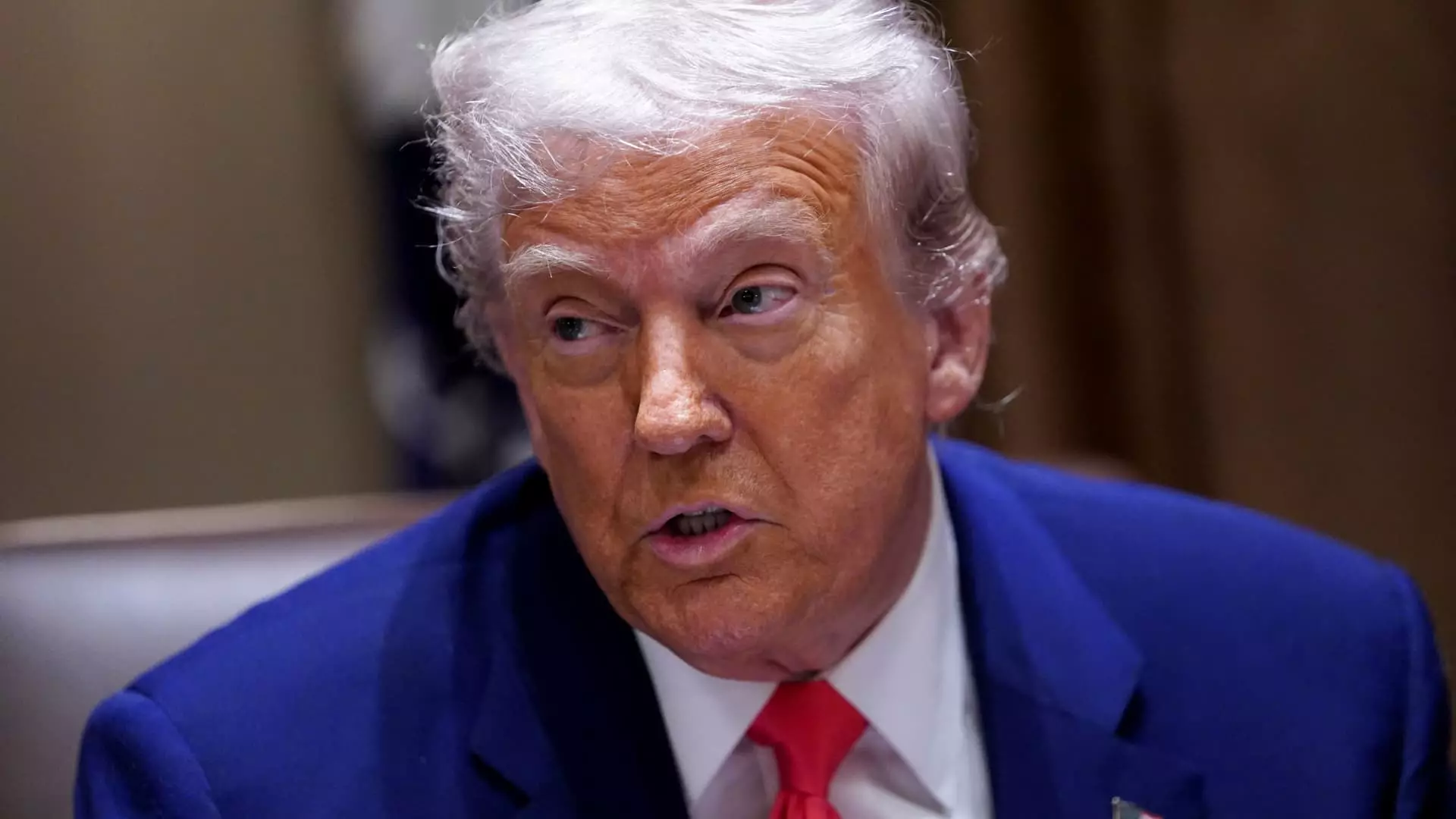The dance of tariffs and trade regulations can appear arcane at best, riddled with convoluted policies that impact everyday consumers and large corporations alike. Recently, the U.S. Customs and Border Protection has granted an exemption to several pivotal tech products from the staggering 145% tariffs imposed by President Trump earlier this month, much to the relief of tech stalwarts such as Apple, whose manufacturing heavily relies on Chinese production. However, while in the short term, this exemption appears to be a favorable move, it raises critical questions about the broader implications of such policies on innovation, consumer choice, and the American economy.
Big Tech rejoiced when directives excluded smartphones and essential components such as semiconductors and solar cells, sparing them from what could have been an economic Armageddon for many manufacturers. “This is the dream scenario for tech investors,” touted Dan Ives of Wedbush Securities. But let’s dig deeper: is this really a triumph or merely a temporary reprieve? Given the nature of the tech industry, where change is rapid and relentless, ongoing trade volatility poses an existential threat to future innovations and consumer affordability.
The Hidden Costs of Short-Term Gains
It’s easy to consider these tariff exemptions as a victory, especially when we see headlines highlighting Apple’s shored-up market value of over $640 billion after the announced exclusions. But what of the consumers? With potential price hikes looming, the prospect of an iPhone costing upwards of $3,500 under Trump’s tariff plans is alarming. This alone should raise flags about the unchecked power of those in politics who prioritize trade wars over the economic sustainability of middle-class consumers striving to afford technology that is becoming increasingly integral to daily life.
Moreover, while these exemptions may temporarily stabilize stock markets, they do not address the underlying issues of dependency on foreign supply chains. Tariffs create a domino effect, influencing mortgage rates and job security. The stock market’s brief recovery and the recent spike in Treasury yields may reflect a superficial confidence, yet they signal deeper, systemic disturbances that are waiting to bubble over.
The Illusion of Tech Independence
This exemption does not occur in a vacuum; it is merely a patch on a much larger problem of U.S.-China relations, which have been in disarray for years. As American companies remain beholden to Chinese manufacturing capabilities, what does it say about our own innovation? If our tech giants are bolstered by exemptions, do we risk becoming complacent as we rely on foreign production for critical technology? While the immediate market reaction seems positive, painting a picture of relief, we must consider whether this represents a genuine victory or just a temporary boon for corporate profits.
Trade policies should challenge us to build a robust infrastructure that supports homegrown innovation, rather than encouraging a reliance on foreign production. The tech sector in America has grown largely due to the vast resources and population of China; however, can we afford to ignore the necessity of technological independence in a rapidly evolving digital landscape?
The Road Ahead: Realizing Tech Sovereignty
As our tech ecosystem is dictated by fragile import-export dynamics, the need for a paradigm shift has never been clearer. Bipartisan support is essential to foster conditions for innovation, sustainability, and fair competition. The American consumer deserves options that are not subject to the whims of foreign economies, nor should they bear the weight of tariffs that disproportionately harm them.
The challenge ahead is to reframe our focus from reactive tariffs to proactive strategies that promote a diverse tech ecosystem. By incentivizing the growth of domestic manufacturing, investing in research and development, and streamlining regulations to foster innovation, we can truly build a resilient economy that serves both corporations and consumers alike.
In navigating this tumultuous landscape, let us prioritize long-term strategies that ensure the integrity of our tech infrastructure while resisting the impulse to band-aid the problem with temporary tariff exemptions. Embracing tech sovereignty isn’t just about alleviating current burdens—it’s about laying the foundation for an economically secure and innovative American future.

Leave a Reply